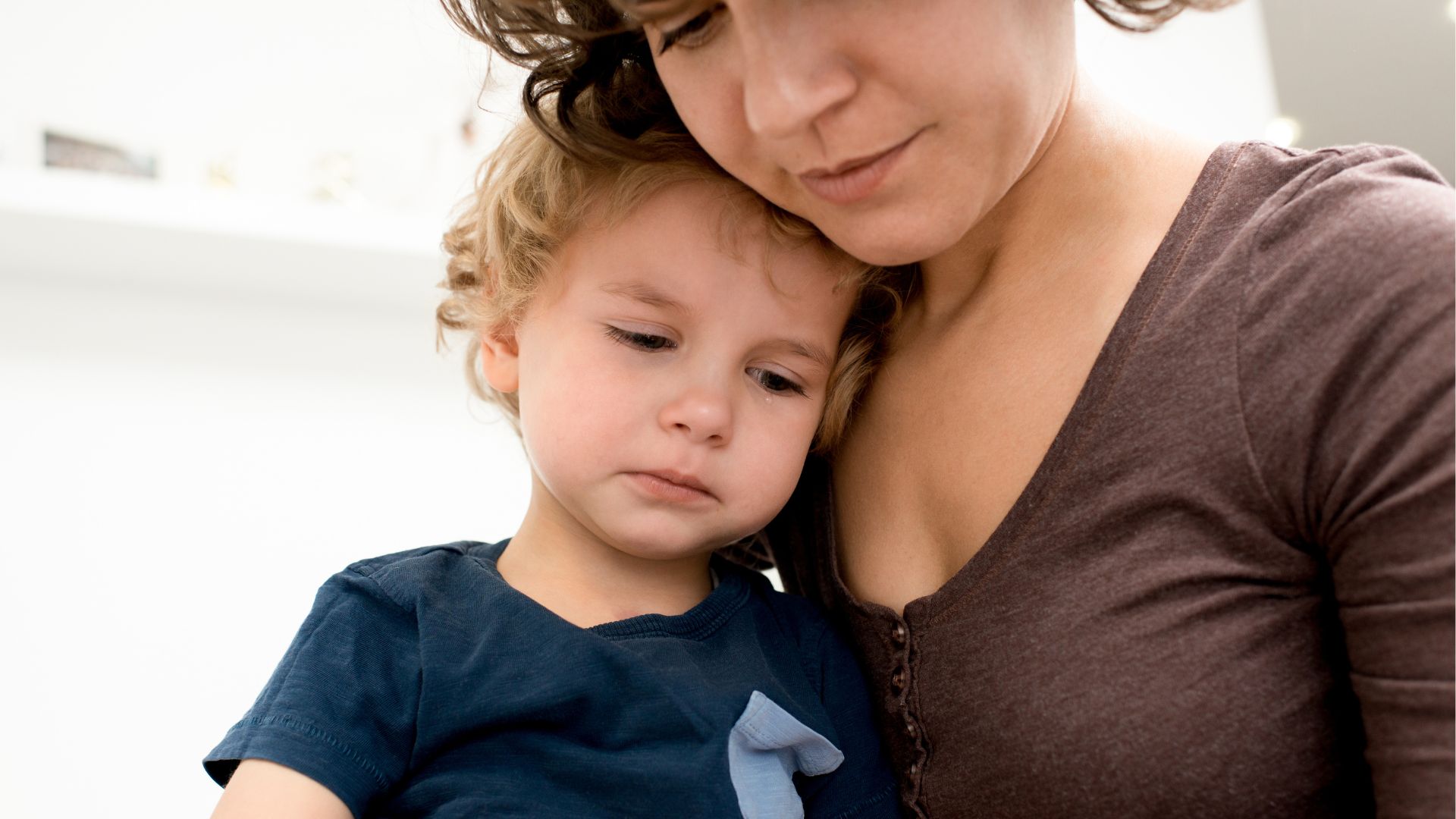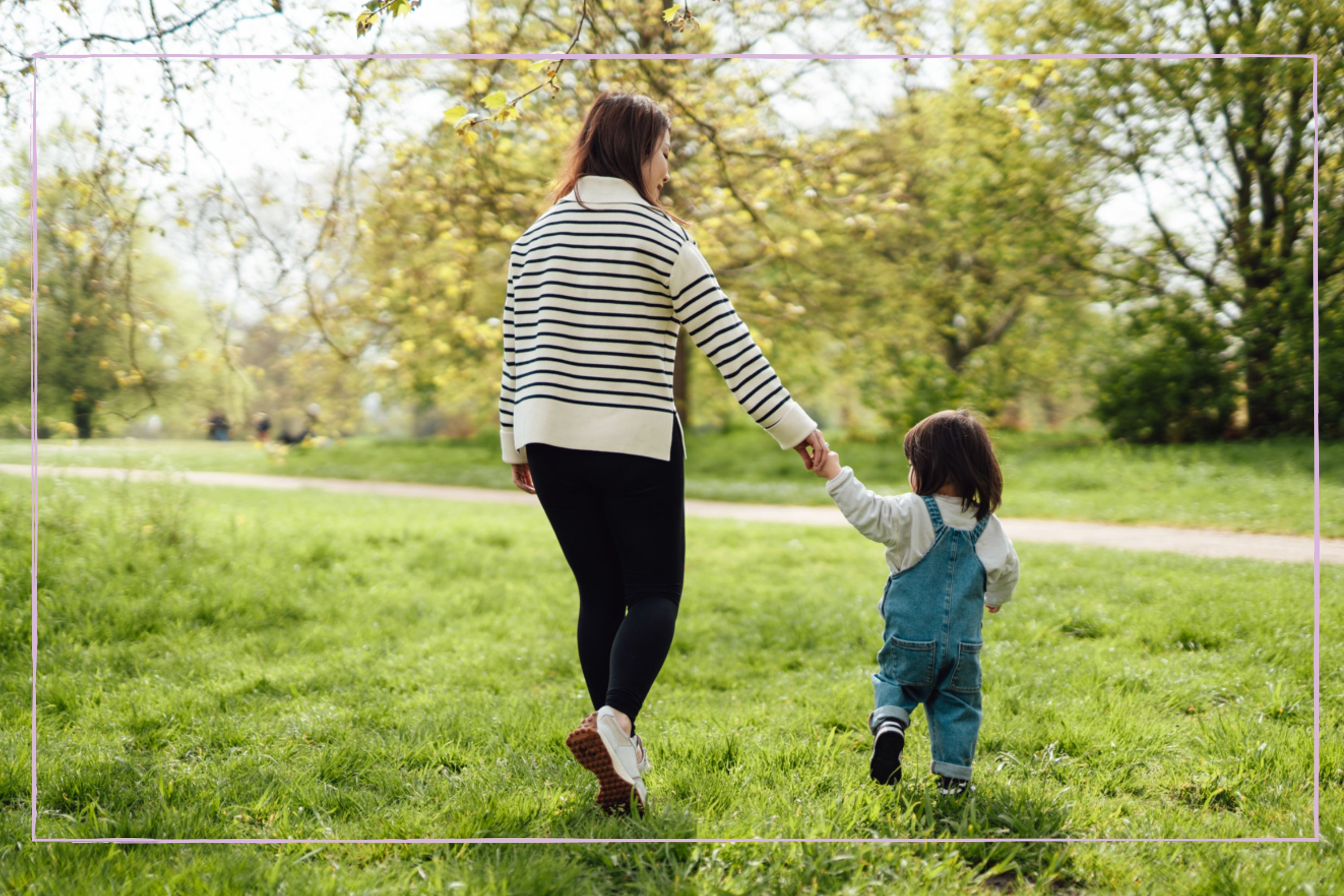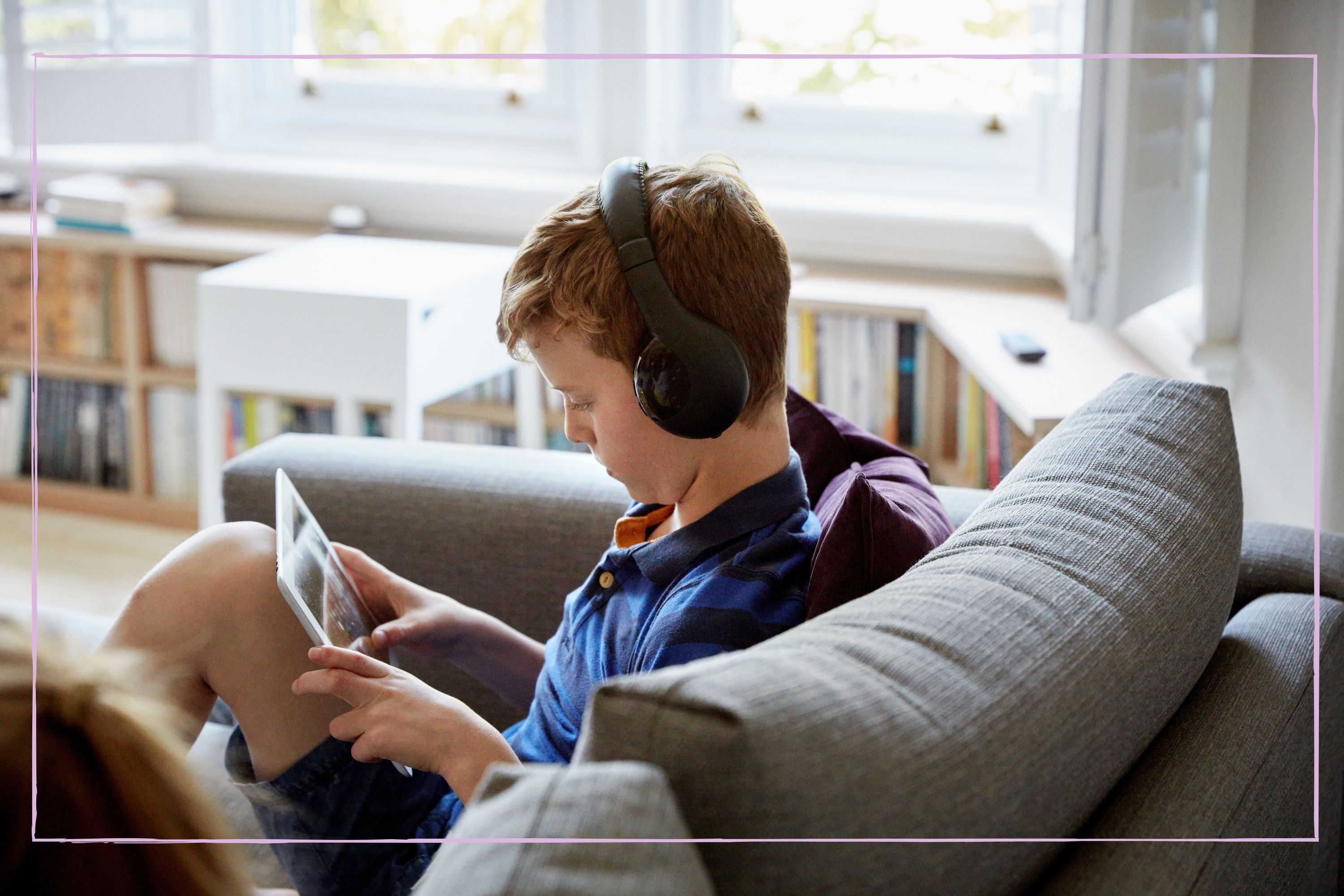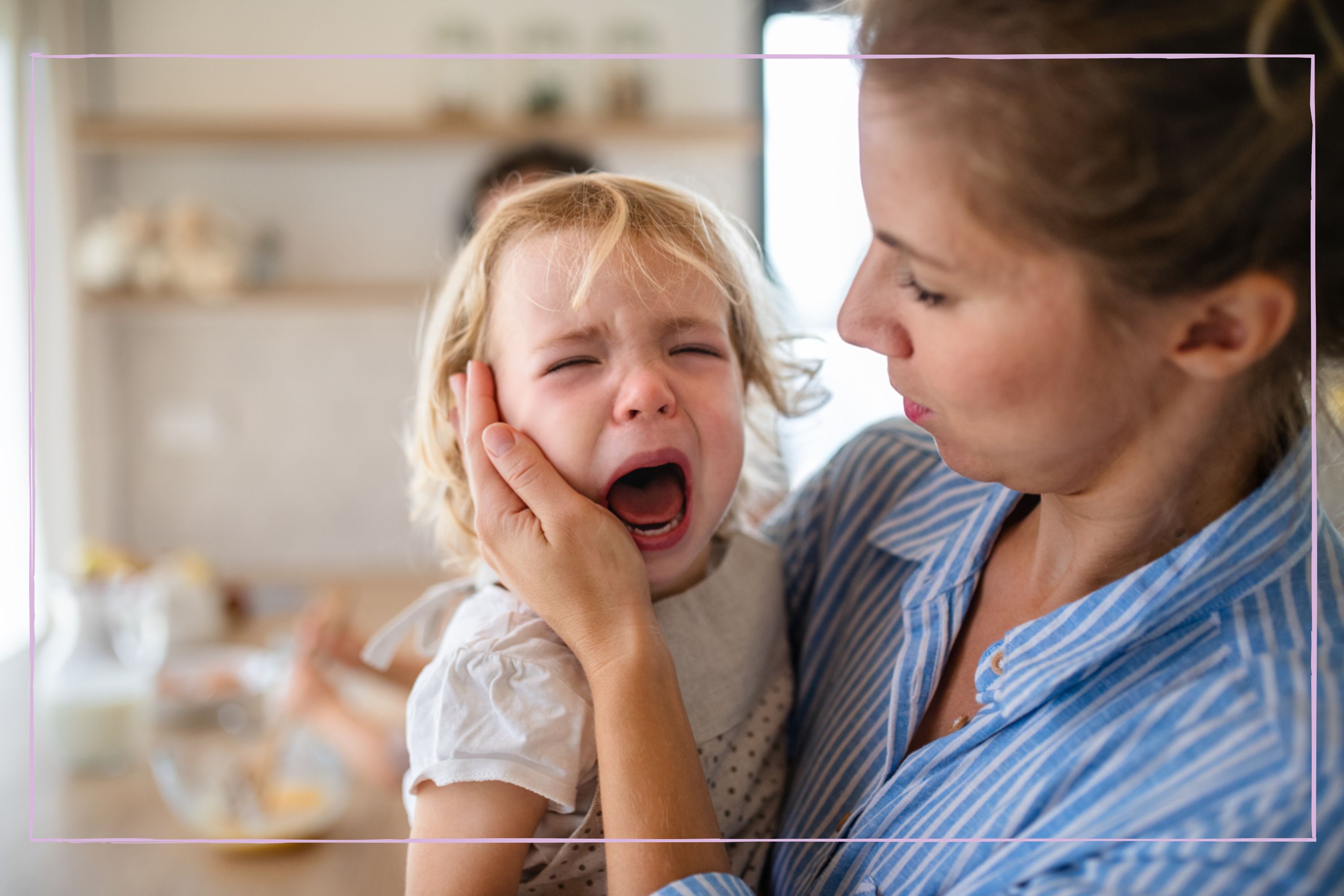If you choose a therapeutic parenting style then this detail will come as no surprise to you
Therapeutic parenting is all about nurturing and encouraging secure attachments


Stephanie Lowe
Therapeutic parenting is a term you might have heard of, here we delve deeper into what it is, what it looks and sounds like, and - if you implement it - how it might benefit your kids.
Most adults looking after children in some capacity have heard of different parenting styles such as attachment, tiger, helicopter, disciplinarian, permissive, and gentle parenting. Well, you'd be forgiven for not recognising therapeutic parenting as it's perhaps lesser known.
Therapeutic parenting is a high-nurturing approach and "does not mean parents are practising psychological therapies on their child", says Rosie Jefferies a training coordinator at Fostering Attachments. Rosie is the adopted daughter of Sarah Naish, a leading figure on the subject, and was therapeutically parented by her mother.
"Children that have suffered trauma in the first three years of life, usually in the form of neglect when parents can’t provide a child’s needs, are insecurely attached because their basic needs weren’t met", explains Rosie. These children often go on to have emotional or behavioural difficulties and so need to be parented differently, or therapeutically, so that their specific needs are met. In this article, we speak to experts to identify what therapeutic parenting is, what methods can be adopted, and what support is available for anyone looking to try this style of parenting.
What is therapeutic parenting?
It involves parenting in such a way that the adults recognise that a child's behaviour is communication. "It’s a high-nurturing way of parenting that aims to make a child feel safe again, usually around adults,’ says Rosie. ‘During the period between 0-3 years old, a child’s brain is still forming so, for example, if a child cried and didn’t get fed, that developmental pathway is turned off so it can’t distinguish if it’s hungry or not."
"See it like their brain is in a wheelchair. The child looks normal but functions badly." Therapeutic parenting is often regarded as being exclusively for traumatised children who have nearly always been in care, fostered, or adopted. But this isn’t always the case.

"Therapeutic parenting also works for securely attached children; in fact, it often works better,’ says Rosie. So, even if a child is securely attached [which means born to loving parents] ‘they may have been exposed to trauma at a very young age or in the womb [usually from the second or third month of pregnancy] if the parent has suffered a trauma, were highly stressed, or abused alcohol or drugs."
GoodtoKnow Newsletter
Parenting advice, hot topics, best buys and family finance tips delivered straight to your inbox.
"These children can be born with high cortisol levels and, as a result, are on high alert and often fractious,’ explains Rosie. ‘It doesn’t mean they’ll grow up damaged but they will tend to use their base brain instead of higher thinking."
If this still doesn’t apply to your child therapeutic parenting techniques can still help parents and children who are struggling with certain issues. "Therapeutic parenting is effective for ALL children,' stresses Rosie. ‘Not only those who have suffered trauma. It simply works more quickly with securely attached children."
How many types of therapeutic parenting is there?
"There are many types of therapeutic parenting," says Dr Dan Hughes, a US-based clinician specialising in children with emotional and behavioural problems. Dr Dan developed Dyadic Developmental Psychotherapy (DDP).
Also known as Attachment-Focused Family Therapy, DDP supports the relationship between parents and children with developmental trauma, to heal past trauma and enable the child to feel safe.
"Most are based on principles of building safe, strong relationships that combine affection and comforting along with clear behavioural expectations and routines, ‘ explains Dr Dan. ‘Therapeutic parenting is specially developed for parenting children who manifest special needs, whether they be based on stressful or traumatic life events or constitutional factors."
How can therapeutic parenting be used by parents?
Therapeutic parenting skills differ from traditional parenting skills in that there’s no time out or any form of corporal punishment. ‘Therapeutic parenting does not shame the child, use reward charts, or expect the child to self-regulate or feel empathy and remorse,’ says Rosie. 'Parents need to ‘recognise that behaviour is communication, which is often based in fear, so should respond to the child's emotional, not chronological, age using empathy and connection to guide behaviour.'
It’s recommended that parents follow PACE, a methodology based on how parents interact and bond with very young children. The primary aim of PACE is to make a child feel safe so they can learn to trust. The DDP website describes PACE, which is an acronym, as follows:
- Playfulness: creating an environment of lightness and interest when communicating; for example, using a light tone when telling a story and expressing fun and joy over being stern or irritated
- Acceptance: showing acceptance of their child’s wishes, feelings, thoughts, urges, motives, and perceptions without judging or evaluating
- Curiosity: showing that they understand their child’s behaviour. Curiosity also helps parents teach their child how to understand their own behaviour
- Empathy: feeling compassion and the emotions of a sad or distressed child and actively showing this so their child feels understood. Parents would offer support, comfort, love, and commitment.
Because dealing with troubled children has its own particular set of challenges Dr Dan recommends that parents or carers don’t go it completely alone, advising that they find ‘a guide, mentor, or counsellor and maybe a parent group’ to learn specific skills and get much-needed support.
Where can parents get support and training
There are some excellent resources and therapeutic parenting training available, says Rosie. "If you are looking after children who have suffered trauma through early life neglect or abuse, the National Association of Therapeutic Parents (NATP), of which Sarah Naish is founder and CEO, can support you." This applies to foster carers, adopters, special guardians, kinship carers, step-parents, and biological parents.
If you want to find out more there are several therapeutic parenting books available. Naish’s books A-Z of Therapeutic Parenting – Strategies and Solutions (available from Amazon, £13.50), and Therapeutic Parenting in a Nutshell: Positives and Pitfalls (available from Amazon, £8.50) are go-to publications for parents of children with attachment difficulties or children who have experienced childhood trauma. Both offer practical tips, advice, and techniques on therapeutic parenting.
For children, try Sarah Naish and Rosie’s Jefferies storybooks for ages 3-10, which help affected children understand their behaviour.
How does therapeutic parenting affect children?
Therapeutic parenting offers invaluable advantages to children. By following this method a ‘child is likely to feel safe and supported while being more open to new learning and accepting the guidance and direction of the parents,’ explains Dr Dan.
Dr Dan's words are echoed by Rosie, who states that therapeutic parenting enables children ‘to self-regulate and develop an understanding of their behaviours and ultimately form secure attachments which will, ultimately, minimise the impact of childhood trauma.’
What are the benefits of therapeutic parenting?
While they can be hard-won, the benefits are hugely valuable to both children with emotional and behavioural difficulties and their parents and carers. With patience, support, and work the process can result, says Dr Dan, in ‘greater open communications and conflicts more easily resolved, leading to more shared interests and values and stronger relationships.’
The goal is that the "child can form attachments to others and build trust in adults,’ says Rosie. What is important to be mindful of is the child’s rocky start and the physiological effect that’s had as well as the psychological. If we remember that cortisol, of which these children have high levels, is ‘ten times more addictive than cocaine, the child lives with a constant feeling of fight or flight. High cortisol levels in children can be like a smoke alarm constantly going off but with therapeutic parenting, this can be quietened or switched off."
Parenting is the hardest job in the world, it kicks off with Matrescence and then once you've made it through maternity leave and stared down the barrel of post-natal depression you then have explaining the mental load to contend with.

Debra Waters is an experienced online editor and parenting writer. She also has a strong background on health, wellbeing, beauty, and food. She currently writes for Goodto and Woman&Home, and print publications Woman, Woman’s Own, and Woman’s Weekly. Debra has written for What to Expect, Everyday Health, and Time Out. In addition, she has had articles published in The Telegraph and The Big Issue.
- Stephanie LoweFamily Editor
-
 The 'incredibly helpful' 30-second rule – liked by nearly 2 million people – that your kid needs to know about
The 'incredibly helpful' 30-second rule – liked by nearly 2 million people – that your kid needs to know aboutThis useful piece of advice is worth remembering for all of us, not just our children
By Adam England Published
-
 What is ‘sturdy parenting’? Child psychologist Dr Becky explains the benefits of this technique
What is ‘sturdy parenting’? Child psychologist Dr Becky explains the benefits of this techniqueIf you're at a loss when it comes to disciplining your kids, sturdy parenting might help - and it's approved by child psychologist Dr Becky.
By Ellie Hutchings Published
-
 3 tips to set screen time boundaries from parenting experts Dr Becky Kennedy and Professor Emily Oster - and #1 is an important reminder
3 tips to set screen time boundaries from parenting experts Dr Becky Kennedy and Professor Emily Oster - and #1 is an important reminderStruggling to set screen time boundaries with your kids? Parenting experts Dr Becky Kennedy and Professor Emily Oster have shared three top tips.
By Ellie Hutchings Published
-
 Could 'lazy parenting' be the next big thing? 2 psychologists share why it can be beneficial for development, but not everyone agrees
Could 'lazy parenting' be the next big thing? 2 psychologists share why it can be beneficial for development, but not everyone agrees'We need more lazy parents' and here's why, according to two child psychologists
By Ellie Hutchings Published
-
 Parents, do you know what H.E.L.P. stands for? Psychologists swear by this acronym to navigate those tough parenting moments we all face
Parents, do you know what H.E.L.P. stands for? Psychologists swear by this acronym to navigate those tough parenting moments we all faceRemember: Halt, Empathy, Limits, Proximity...
By Ellie Hutchings Published
-
 Sticker charts 'don't work in the long run' says psychotherapist - try these 8 tips to teach kids intrinsic motivation instead
Sticker charts 'don't work in the long run' says psychotherapist - try these 8 tips to teach kids intrinsic motivation insteadOne expert has explained eight things you can do as a parent to help your child develop intrinsic motivation - and it means abandoning the sticker chart.
By Ellie Hutchings Published
-
 Reflective parenting could help your teenager manage their big emotions, new research shows - here are 5 steps to try
Reflective parenting could help your teenager manage their big emotions, new research shows - here are 5 steps to tryThe teenage years are tough for everyone involved. But research has suggested that an approach known as 'reflective parenting' can be the key to reconnecting.
By Ellie Hutchings Published
-
 These 5 'game changing' phrases can teach your children about the mental load, according to a psychologist - and it could set them in good stead for adulthood
These 5 'game changing' phrases can teach your children about the mental load, according to a psychologist - and it could set them in good stead for adulthood"Change at home can change society"
By Ellie Hutchings Published